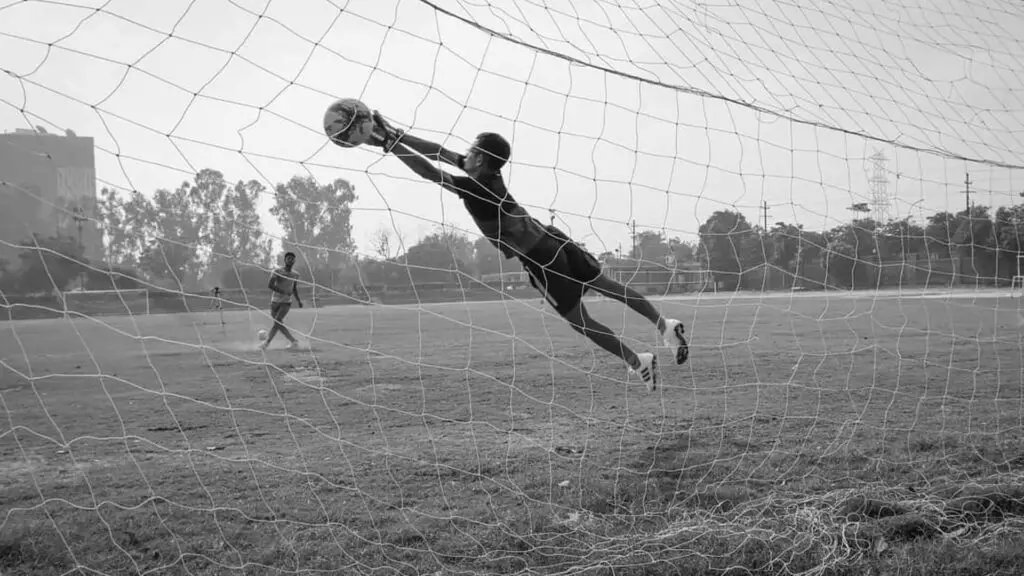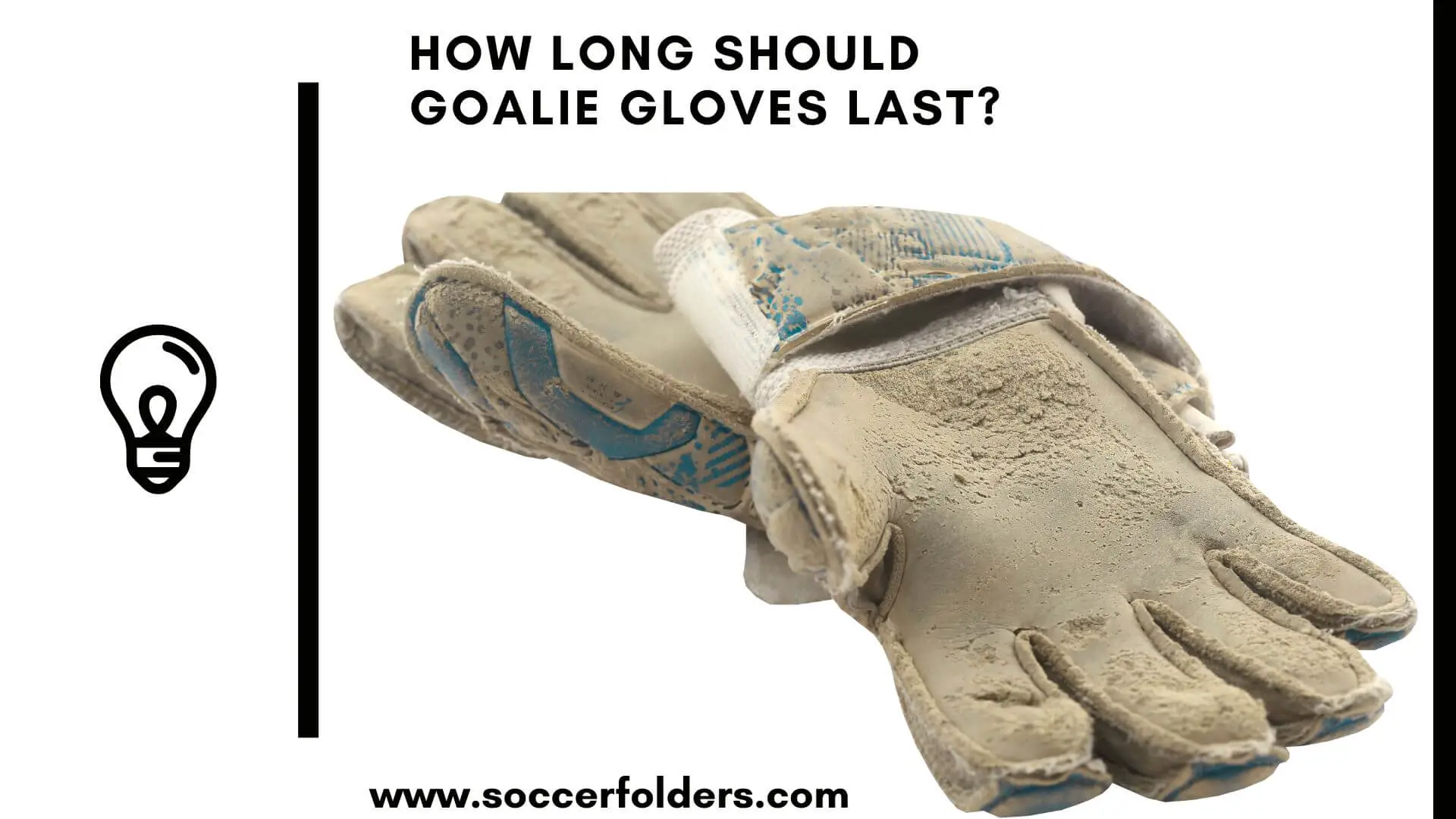How long should goalie gloves last?
First off, as a goalkeeper, your gloves are one of the most critical pieces of equipment that you use. They are not just essential for making saves, but also for protecting your hands from injuries.
Therefore, it’s important to know how long they should last and how to take care of them to maximize their lifespan.
In this article, we’ll explore the factors that influence the durability of goalie gloves and provide tips on how to extend their lifespan.
Without further ado, let’s jump right in.
Quick Navigation
How long should Goalie Gloves last?
On average, a pair of goalie gloves can last anywhere between 20 to 50 games, or six months to a year of regular use. To maximize the longevity of goalie gloves, it is recommended to keep them clean, dry, and stored in a cool, dry place away from direct sunlight.
If you are a professional goalkeeper, you may need to replace your gloves more frequently since you play more often and at a higher level of intensity.
On the other hand, if you only play occasionally, your gloves may last longer.
Also, keep in mind that goalie gloves’ durability is subject to a range of factors such as the frequency of usage, the quality of materials, and the level of maintenance. So, sometimes it can be challenging to provide a precise estimate of the lifespan of goalie gloves.
Factors that affect Goalie Glove Lifespan
- Frequency of use
The frequency of use is one of the most significant factors that affect the lifespan of goalie gloves. The more you use them, the faster they will wear out. Therefore, if you play soccer regularly, you will need to replace your gloves more frequently than someone who only plays occasionally.
- Quality of materials
The quality of materials used to make the gloves is another important factor to consider. Higher-quality materials will last longer than lower-quality ones.
For example, gloves made with latex foam are known to wear out faster than those made with more durable materials like polyurethane.
- Level of maintenance
The level of maintenance you provide to your gloves will also impact their lifespan. If you take good care of your gloves, they will last longer. Proper maintenance includes washing and drying them after each use, storing them in a cool, dry place, and avoiding exposure to direct sunlight or extreme temperatures.
- Playing conditions

The playing conditions can also affect the lifespan of goalie gloves. If you play on hard surfaces, such as artificial turf, your gloves will wear out faster than if you play on grass. Similarly, if you play in wet conditions, your gloves will wear out faster than if you play in dry conditions.
How to take Care of your Goalie Gloves?
Proper care and maintenance can help extend the lifespan of your goalie gloves. Here are some tips on how to take care of your gloves:
- Wash your gloves after each use
Washing your gloves after each use is crucial to remove dirt and sweat that can cause them to deteriorate. Use lukewarm water and mild soap to wash your gloves. Don’t use hot water or harsh detergents as they can damage the gloves’ materials.
==>>Read the full article on how to wash goalkeeper gloves here.
- Dry your gloves properly
After washing your gloves, squeeze out any excess water and let them air dry. Avoid using a dryer or exposing them to direct sunlight or heat, as this can cause them to lose their shape and wear out faster.
==>>Also read my full article on how to dry goalkeeper gloves fast here.
- Store your gloves properly
When storing your gloves, make sure they are completely dry, and avoid exposing them to direct sunlight or extreme temperatures. Don’t fold or crease them, as this can cause them to lose their shape.
- Rotate your gloves
Rotating your gloves can help extend their lifespan. Instead of using the same pair of gloves every game, switch between two or three pairs. This will give each pair time to dry and recover from the wear and tear of the previous game.
- Avoid wearing your gloves off the field
Don’t wear your gloves off the field as this can cause them to wear out faster. Only wear them during games and practices to ensure that they last as long as possible.
When to Replace Goalie Gloves?
Knowing when to replace your goalie gloves is important to ensure that you have the best possible protection and performance on the field. While there is no set timeframe for when to replace goalie gloves, there are some signs to look out for that indicate it may be time for a new pair.
- Wear and tear: If you notice that your gloves are starting to show significant wear and tear, such as holes, tears, or fraying seams, it’s time to replace them. This can compromise the integrity of the gloves and put your hands at risk of injury.
- Loss of grip: One of the most important functions of goalie gloves is to provide a secure grip on the ball. If you notice that your gloves are losing their grip, either through wear and tear or the breakdown of the materials, it’s time to replace them.
- Loss of padding: Goalie gloves are designed to provide protection and cushioning for your hands. If you notice that the padding has worn down or become compressed, it’s time to replace the gloves. This can help prevent injuries to your hands and fingers.
- Smell: Over time, goalie gloves can develop an unpleasant smell due to sweat and bacteria buildup. While this may not be a sign that the gloves need to be replaced immediately, it’s a good indication that they need to be thoroughly cleaned and deodorized.
Final Thoughts
The lifespan of goalie gloves varies depending on factors such as frequency of use, quality of materials, level of maintenance, and playing conditions. On average, goalie gloves should last between 20 and 50 games or six months to a year of regular use.
To extend the lifespan of your gloves, it’s important to take good care of them by washing and drying them after each use, storing them in a cool, dry place, and rotating them between games.
By following these tips, you can ensure that your gloves last as long as possible and continue to provide the protection and performance you need on the field.
Hope you have gained value from this article.
You can also read: What do you do with old goalkeeper gloves?


